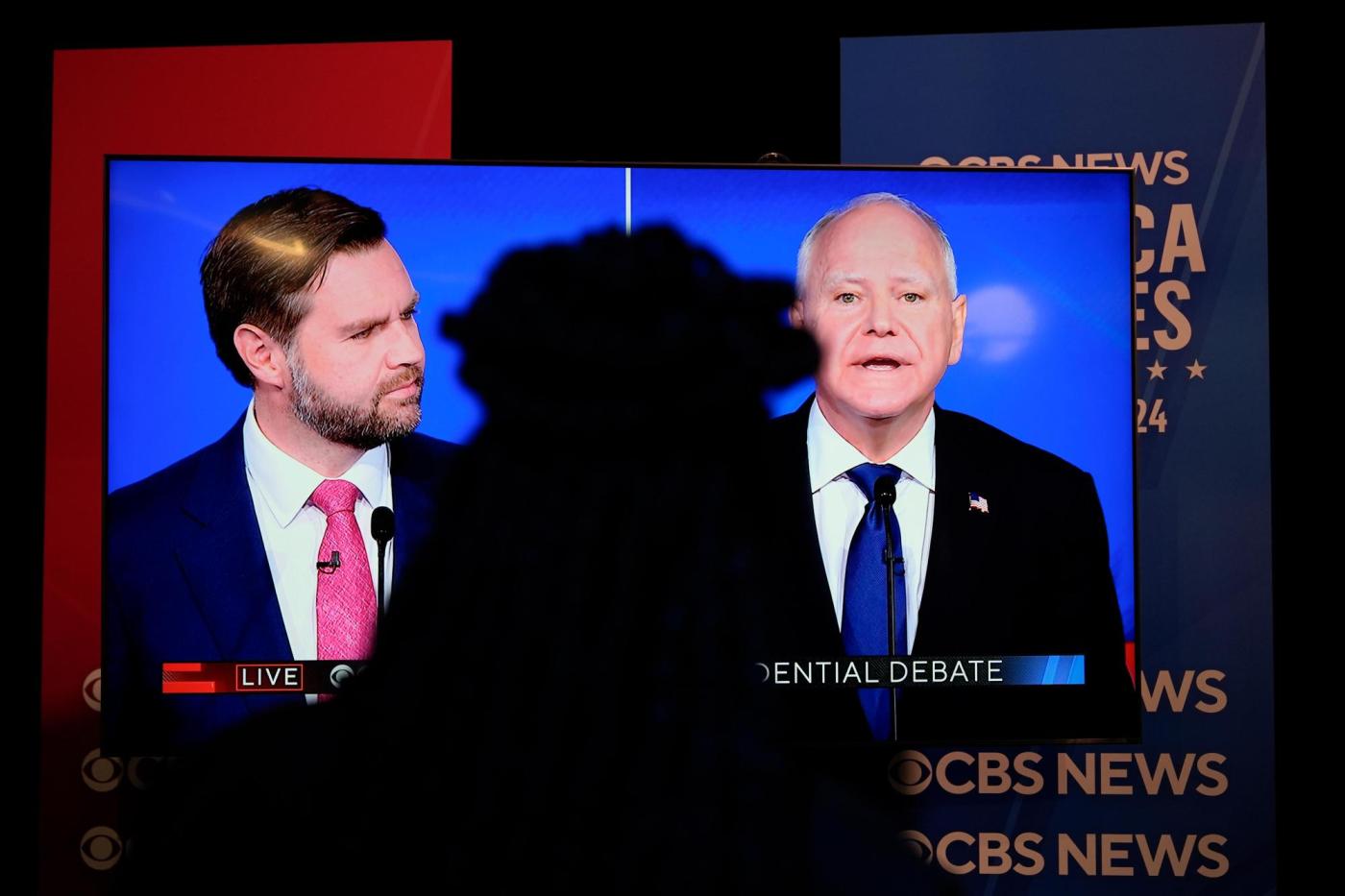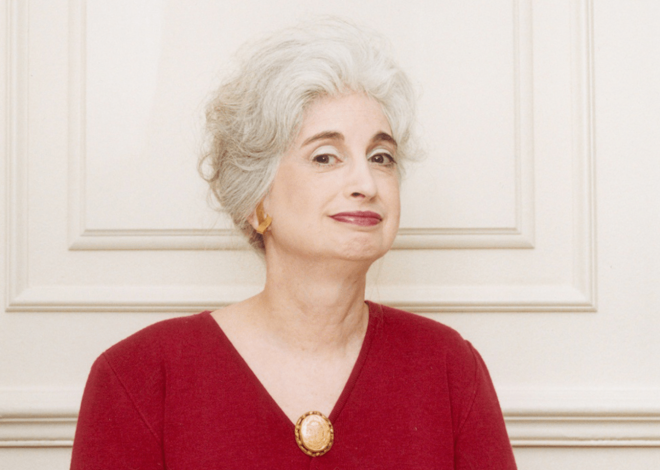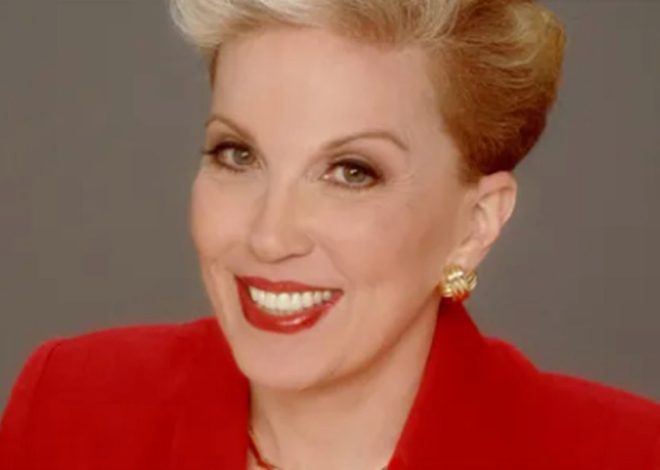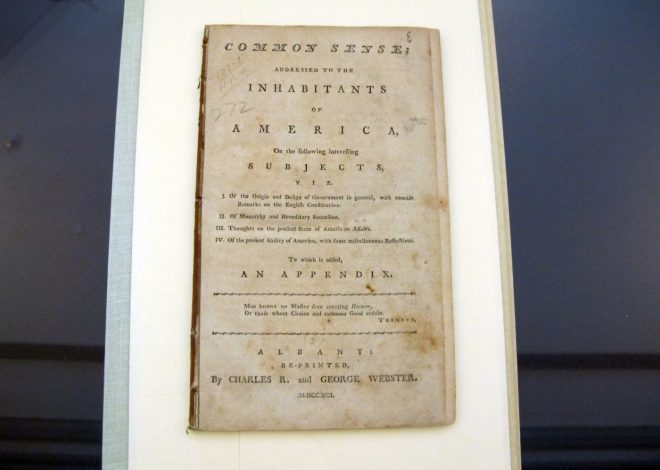
Vance and Walz keep it civil in a policy-heavy discussion: VP debate takeaways
By BILL BARROW, ZEKE MILLER and NICHOLAS RICCARDI
WASHINGTON (AP) — Vice presidential hopefuls Tim Walz and JD Vance focused their criticism on the top of the ticket on Tuesday as they engaged in a policy-heavy discussion that may be the last debate of the 2024 presidential campaign.
It was the first encounter between Minnesota’s Democratic governor and Ohio’s Republican senator, following last month’s debate between Vice President Kamala Harris and former President Donald Trump. It comes just five weeks before Election Day and as millions of voters are now able to cast early ballots.
Tuesday’s confrontation played out as the stakes of the contest rose again after Iran fired missiles into Israel, while a devastating hurricane and potentially debilitating port strike roiled the country at home. Over and again, Walz and Vance outlined the policy and character differences between their running mates, while trying to introduce themselves to the country.
Here are some takeaways from Tuesday’s debate.
With Mideast in turmoil, Walz promises ‘steady leadership’ and Vance offers ’peace through strength’
Iran’s ballistic missile attack on Israel on Tuesday elicited a contrast between the Democratic and Republican tickets on foreign policy: Walz promised “steady leadership” under Harris while Vance pledged a return to “peace through strength” if Trump is returned to the White House.
The differing visions of what American leadership should look like overshadowed the sharp policy differences between the two tickets.
The Iranian threat to the region and U.S. interests around the world opened the debate, with Walz pivoting the topic to criticism of Trump.
“What’s fundamental here is that steady leadership is going to matter,” Walz said, then referenced the “nearly 80-year-old Donald Trump talking about crowd sizes” and responding to global crises by tweet.
Vance, for his part, promised a return to “effective deterrence” under Trump against Iran, brushing back on Walz’s criticism of Trump by attacking Harris and her role in the Biden administration.
“Who has been the vice president for the last three and a half years and the answer is your running mate, not mine,” he said. He pointedly noted that the Hamas attacks on Israel on Oct. 7, 2023, happened “during the administration of Kamala Harris.”
Vance and Walz punch up rather than at each other
Vance and Walz trained the bulk of their attacks not on their onstage rivals, but on the running mates who weren’t in the room.
Both vice presidential nominees sought to convey a genial mien as they lobbed criticism at Harris and Trump, respectively.
It was a reflection of the fact that most voters don’t cast a ballot based on the vice president, and on a vice presidential nominee’s historic role in serving as the attack dog for their running mates.
Walz pointedly attacked Trump for failing to meet his pledge of building a physical barrier across the entire U.S.-Mexico border at the country’s southern neighbor’s expense.
“Less than 2% of that wall got built and Mexico didn’t pay a dime,” Walz said.
Underscoring the focus on the top of the ticket, during a back-and-forth about immigration, Vance said to his opponent, “I think that you want to solve this problem, but I don’t think that Kamala Harris does.”
It was a wonky policy debate, with talk of risk pools, housing regulations and energy policy
In an age of world-class disses optimized for social media, Tuesday’s debate was a detour into substance. Both candidates took a low-key approach and both enthusiastically delved into the minutiae.
Walz dug into the drafting of the Affordable Care Act when he was in the House in 2009, and pushed Vance on the senator’s claim that Trump, who tried to eliminate the law, actually helped preserve it. Vance, defending his claim that illegal immigration pushes up housing prices, cited a Federal Reserve study to back himself up. Walz talked about how Minneapolis tinkered with local regulations to boost the housing supply. Both men talked about the overlap between energy policy, trade and climate change.
It was a very different style than often seen in presidential debates over the past several election cycles.
Vance stays on the defensive on abortion
Walz pounced on Vance repeatedly over abortion access and reproductive rights as the Ohio senator tried to argue that a state-by-state matrix of abortion laws is the ideal approach for the United States. Walz countered that a “basic right” for a woman should not be determined “by geography.”
“This is a very simple proposition: These are women’s decisions,” Walz said. “We trust women. We trust doctors.”
Walz sought to personalize the issue by referencing the death of Amber Thurman, who waited more than 20 hours at the hospital for a routine medical procedure known as a D&C to clear out remaining tissue after taking abortion pills. She developed sepsis and died.
Rather than sidestep the reference, Vance at one point agreed with Walz that “Amber Thurman should still be alive.”
Vance steered the conversation to the GOP ticket’s proposals he said would help women and children economically, thus avoiding the need for terminating pregnancies. But Walz retorted that such policies — tax credits, expanded childcare aid, a more even economy — can be pursued while still allowing women to make their own decisions about abortion.
Both candidates put a domestic spin on climate change
In the wake of the devastation of Hurricane Helene, Vance took a question about climate change and gave an answer about jobs and manufacturing, taking a detour around Trump’s past claims that global warming is a “hoax.”
Vance contended that the best way to fight climate change was to move more manufacturing to the United States, because the country has the world’s cleanest energy economy. It was a distinctly domestic spin on a global crisis, especially after Trump pulled the U.S. out of the international Paris climate accords during his administration.
Walz also kept the climate change focus domestic, touting the Biden administration’s renewable energy investments as well as record levels of oil and natural gas production. “You can see us becoming an energy superpower in the future,” Walz said.
It was a decidedly optimistic take on a pervasive and grim global problem.
Walz, Vance each blame opposing presidential candidate for immigration stalemate
The two running mates agreed that the number of migrants in the U.S. illegally is a problem. But each laid the blame on the opposing presidential nominee.
Vance echoed Trump by repeatedly calling Harris the “border czar” and suggested that she, as vice president, single-handedly rolled back the immigration restrictions Trump had imposed as president. The result, in Vance’s telling, is an unchecked flow of fentanyl, strain on state and local resources and increased housing prices around the country.
Harris was never asked to be the “border czar” and she was never specifically given the responsibility for security on the border. She was tasked by Biden in March 2021 with tackling the “root causes” of migration from the Central American countries of Honduras, Guatemala and El Salvador and pushing leaders there and in Mexico to enforce immigration laws. Harris was not empowered to set U.S. immigration policy — only the president can sign executive orders and Harris was not empowered as Biden’s proxy in negotiations with Congress on immigration law.
Walz advanced Democrats’ arguments that Trump single-handedly killed a bipartisan Senate deal to tighten border security and boost the processing system for immigrants and asylum seekers. Republicans backed off the deal, Walz noted, only after Trump said it wasn’t good enough.
Both candidates leaned on tried-and-true debate tactics — including not answering tough questions
Asked directly whether Trump’s promise to deport millions of illegal immigrants would remove parents of U.S.-born children, Vance never answered the question. Instead, the senator tried to put his best spin on Trump’s plan to use the military to help with deportations and pivot to attacking Harris for a porous border. Asked to respond to Trump’s having called climate change a “hoax,” Vance also avoided a response.
The debate kicked off with Walz being asked if he’d support a preemptive strike by Israel against Iran. Walz praised Harris’ foreign policy leadership but never answered that question, either.
And at the end of the debate, Vance would not answer Walz’s direct question of whether Trump indeed lost the 2020 election.
Walz has stumbles and lands punches in uneven night
Walz had several verbal stumbles on a night in which he admitted to “misspeaking” often. In the debate’s opening moments, he confused Iran and Israel when discussing the Middle East.
At one point he said he had “become friends with school shooters,” and he stumbled through an explanation of inaccurate remarks about whether he was in Hong Kong during the 1989 Tiananmen Square massacre. ( He was not.)
But the governor noticeably put Vance on the defensive over abortion and, near the end of the debate, with a pointed question about whether Trump won the 2020 election.
Vance stays on a limb on Jan. 6 insurrection
The candidates went out of their way to be polite to each other until the very end, when Vance refused to back down from his statements that he wouldn’t have certified Trump’s 2020 election loss.
Vance tried to turn the issue to claims that the “much bigger threat to democracy” was Democrats trying to censor people on social media. But Walz wouldn’t let go.
“This one is troubling to me,” said Walz, noting that he’d just been praising some of Vance’s answers. He rattled off the ways Trump tried to overturn his 2020 loss and noted that the candidate still insists he won that contest. Then Walz asked Vance if Trump actually lost the election.
Vance responded by asking if Harris censored people.
“That is a damning non-answer,” said Walz, noting that Trump’s former vice president, Mike Pence, wasn’t on the debate stage because he stood up to Trump on Jan. 6, 2021, and presided over Congress’ certification of the former president’s loss.
“America,” Walz concluded, “I think you’ve got a really clear choice on this election of who’s going to honor that democracy and who’s going to honor Donald Trump.”


